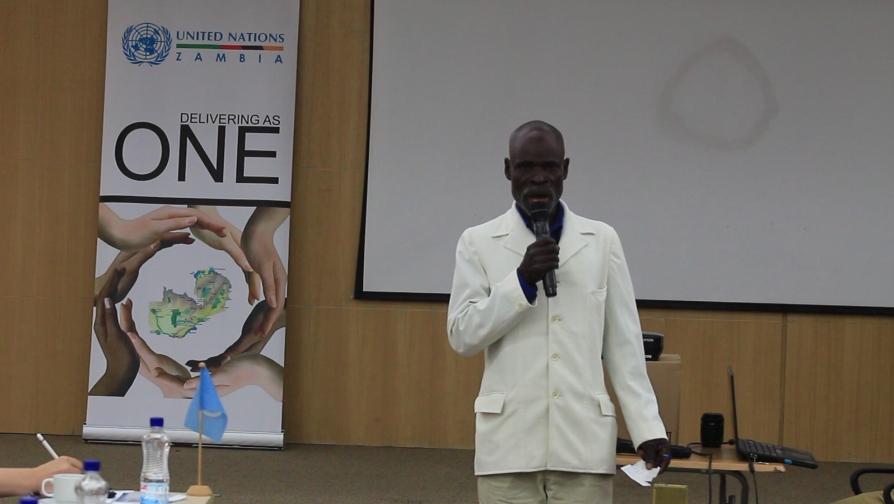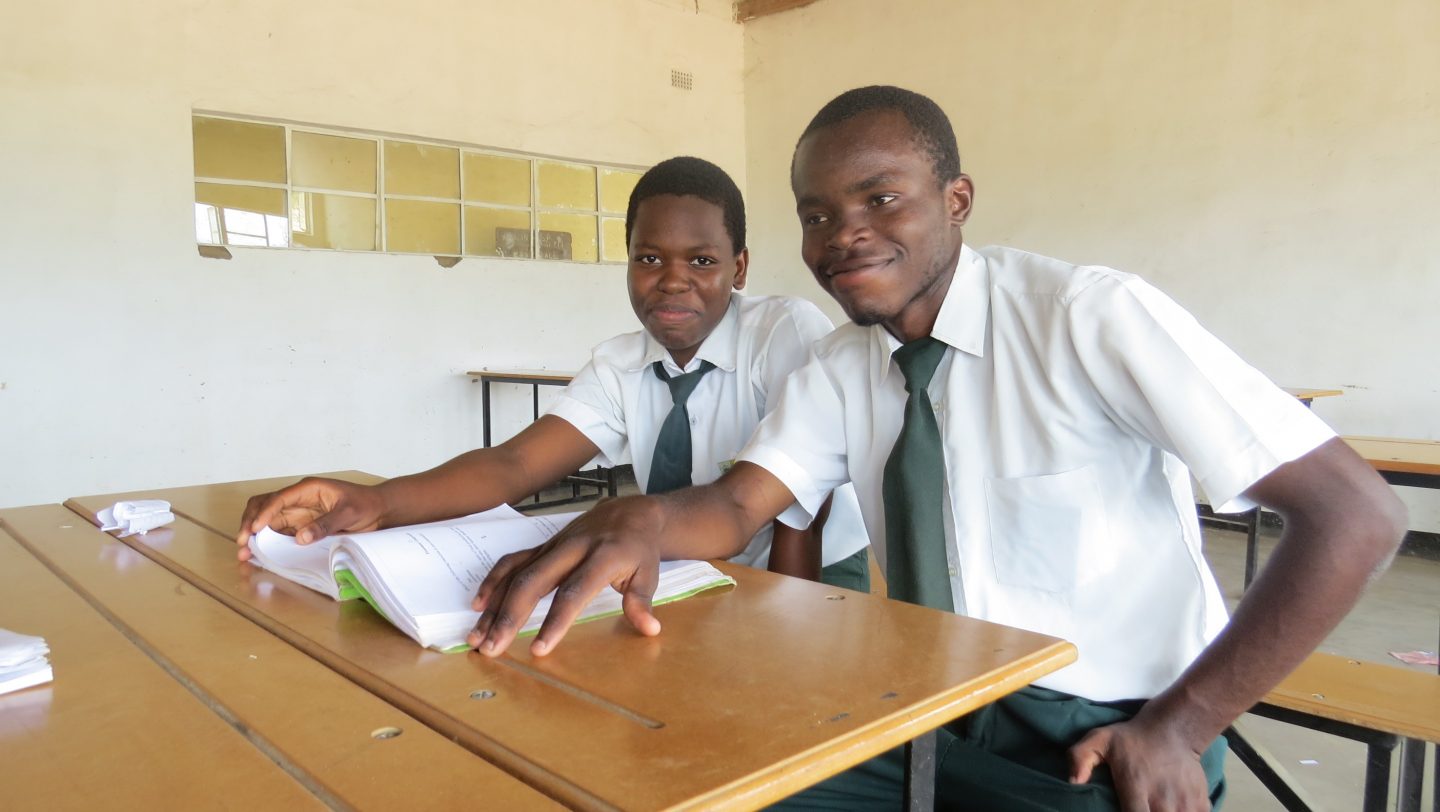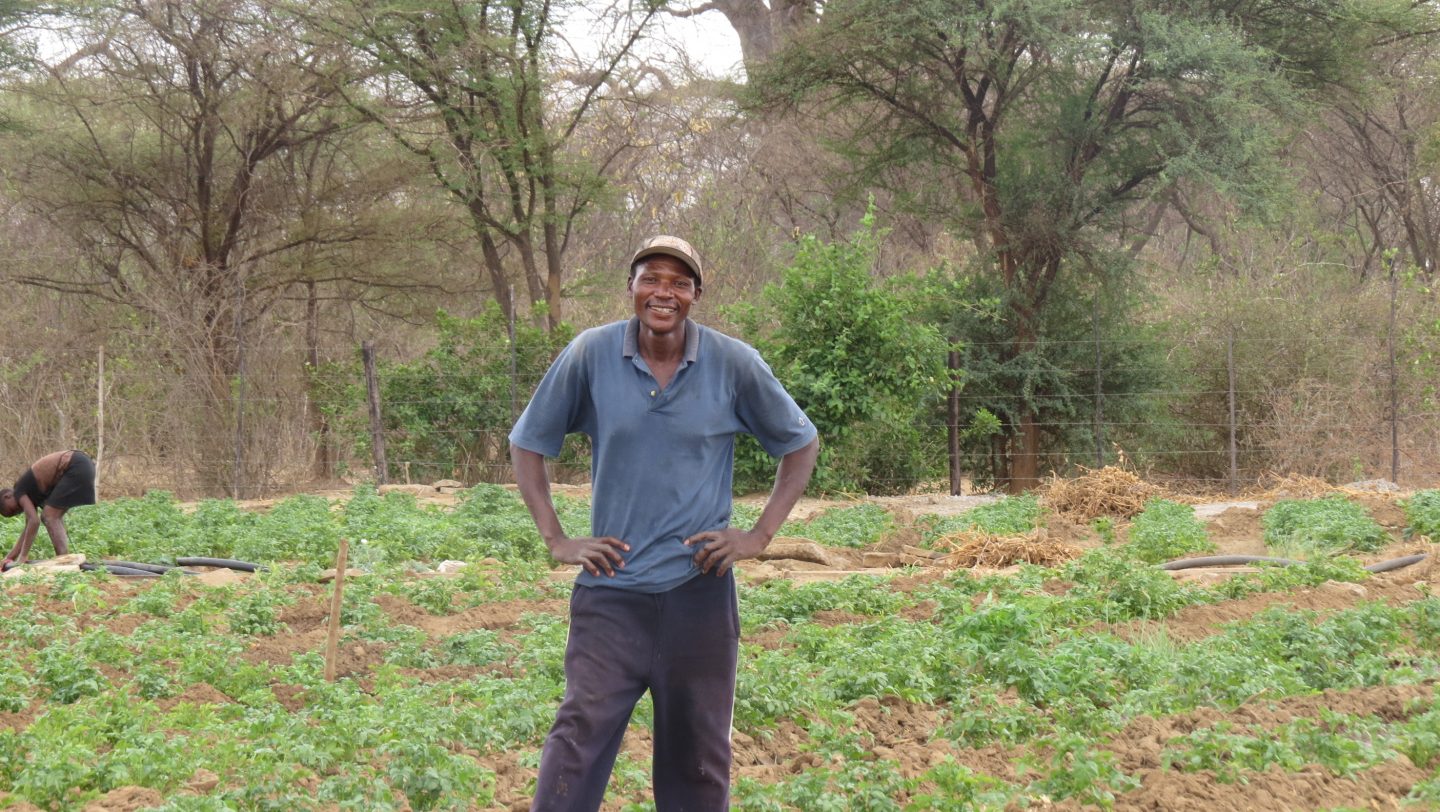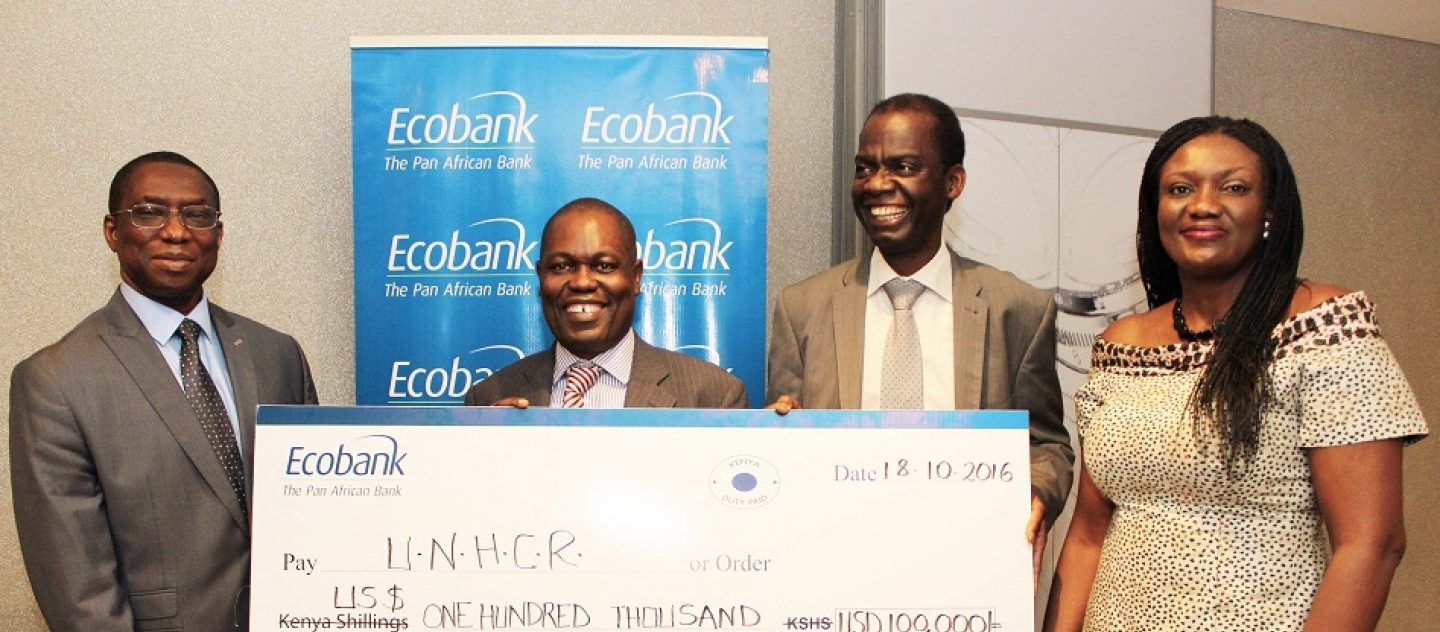Zambia at the forefront of solutions for refugees
Working together with UNHCR, the UN refugee agency, development agencies and other stakeholders, the Zambian government makes progress to locally integrate former Angolan and former Rwandan refugees, but more donor support is still needed.
By Kelvin Shimoh| 21 December 2016
Lusaka, Zambia – Locally integrated former refugees in Zambia have appealed for more donor support in infrastructure development in the newly created resettlement schemes in Meheba and Mayukwayukwa, where those approved for integration by the government reside.
They were speaking at the ceremony organised to handover the chair and co-chair roles of the National Advisory Group from the Zambian Office of the Commissioner for Refugees and UNHCR to the Zambian Department of Resettlement, under the Office of the Vice-President and the United Nations Development Programme. Thus officially bridging the humanitarian to development gap.
The former refugee and Zambian farmers living in the two local integration resettlement schemes, were given the opportunity to present testimonies about life in their new villages. The former refugees applauded the Government for granting them permanent residency status and UNHCR for the initial support to new settlers and the rehabilitation of infrastructure, thanks to the support of various donors. They added that while many former refugees were willing to relocate to the local integration resettlement schemes from the refugee camp side of Meheba and Mayukwayukwa, the vast area of the resettlement scheme dictated that more work on access roads, clinics and schools was necessary to make life easier for the new residents as they settle.
“We are happy with the plots of land given to us and the infrastructure built so far in the two resettlement schemes by UNHCR such as clinics, roads and primary schools, however, owing to the vastness of the two settlements, we appeal to our donors to build more schools – especially a secondary school – and clinics to shorten the distances our children and pregnant mothers have to travel to seek medical assistance. While the road from Road 36 to Kamiba in Meheba has been done, there is also need to do more access roads. Improved infrastructure will encourage more former refugees to move to the new resettlement schemes” explained 56-year old Noah Kaholo, a former Angolan refugee from the Meheba resettlement scheme.

Former Angolan refugee, Noah Kaholo, speaks to donors and members of the National Advisory Group during the handover ceremony from humanitarian to development actors in Lusaka on 13 December 2016. UNHCR/K. Shimoh
A former Rwandan refugee from Mayukwayukwa, Leonard Nzabandola, informed that the Rwandans in Mayukwayukwa were ready to move to the resettlement scheme once plots were allocated to them.
“When I lost my husband, I had nowhere to go. My life has been transformed from despair to hope because of this local integration programme, ” said Ireen Mweemba, a 45 year-old Zambian widow.
Mweemba has started a new life in Meheba Resettlement Scheme in 2014, following the death of her husband in 2012. The mother of seven children is predominantly involved in farming for subsistence. Mweemba who is from the southern province of Zambia in Monze District, narrates that she had no means of survival after the death of her husband who was the family’s bread winner. In her pursuit of alms from different people, someone advised her to consider applying to the Ministry of Home Affairs to be settled in the newly created local integration resettlement schemes to live with former refugees.
She heeded the advice, applied and was later settled in Meheba, where she currently grows different types of crops such as sweet potatoes, beans, vegetables, cassava and maize.With the assistance of UNHCR, Mweemba has been helped with farming tools, the construction of her house and UNHCR’s partner, International Development Enterprise (IDE) is training her on better farming and entrepreneurial methods.

Ireen Mweemba, outside her newly built home in the Meheba resettlement scheme which brings former refugees and Zambians to live together as part of the UNHCR supported local integration programme. UNHCR/K. Shimoh
Most of the locally integrated former refugees and Zambians in the resettlement schemes are predominantly farmers, and in the past three years UNHCR, through various partners, has rehabilitated various infrastructure in the two settlements such as clinics, schools, roads and boreholes. Furthermore, livelihood activities, to benefit both Zambians and former refugees have been implemented by the UN Refugee Agency. Some of the livelihood activities being undertaken include vocational training for youths, entrepreneurship and business mentoring and agricultural support.
“We commend our donors for the continued support. We are confident that Government and donor support to this areas will continue even after UNHCR phases out from the socioeconomic component of the local integration program” said Ms Laura Lo Castro, the UNHCR Representative in Zambia, “we also commend the Zambian government for being leaders on the continent when it comes to local integration.”
The UN Resident Co-ordinator, Ms Janet Rogan, who was in attendance at the NAG meeting, expressed appreciation for this unique program, recognized in Africa and beyond.
The Zambian Government has expressed willingness to allow all those former refugees eligible for local integration, to move to the two resettlement schemes while their residency permits were being processed.
The National Advisory Group is an advisory body established in May 2014, and mirroring the Solution Alliance, a global consortium focused on linking development and humanitarian response to address – and possibly prevent – situation of forced displacement. The Group has been meeting regularly, and consists of different stakeholders drawn from the government, co-operating partners, UN agencies, civil society, the private sector and academia.
Two resettlement schemes, Mayukwayukwa and Meheba, were established by the Government of Zambia using part of the land previously gazetted as refugee settlements in Western and North-western provinces to host both Zambians and former refugees who have been granted permanent residency status, following government established criteria.
A three-year local integration strategy was launched by the Government of Zambia and UNHCR in 2014, with the UN Refugee Agency responsible for mobilising resources from co-operating partners to fund projects identified jointly with the government and the local communities themselves. The Office of the Commissioner for Refugees in the Ministry of Home Affairs has been in charge of daily administration of the two resettlement schemes and the refugee camps, as well as working with the Immigration Department and UNHCR, handling the legal pillar of the local integration program. The legal component comprises processing of documentation, including country of origin passports, issuance of alien cards and residency permits.
The local integration programme aims to grant residency permits to over 4, 000 Rwandans and 20, 000 Angolans (all former refugees). Once granted permanent residence, the former refugees could later, if they so wish, apply for citizenship after 5 or 10 years, depending on whether they were born in Zambia. Thus effectively ending their status of being refugee and finding a durable solution.
So far, 10,792 Angolans have been screened and approved for local integration, with the Office of the Commissioner for Refugees receiving 1,689 passports issued by the Angolan Government, a prerequisite for granting permits. The Department of Immigration has issued 1,133 residence permits to former Angolan refugees. Among former Rwandan refugees affected by cessation, a total of 128 applications have been submitted to Government. Of these, 95 have already been screened for LI. A total of 25 former Rwandan refugees have already been issued with residence permits.
To date, a total of some 2,000 Zambians and Zambians have moved to their plots in the two resettlement schemes, where a land demarcation survey has been completed. Each eligible family has been provided with 5-hectares of land, and basic shelter structures, provided for the most vulnerable beneficiaries. The vulnerable families receive seeds and tools for farming and are assisted with land clearance for their farms. They also receive shelter support pending construction of permanent homes.
Zambia currently hosts 56,928 people of concern in the two settlements, urban areas and those that are self-settled in five provinces around the country.



